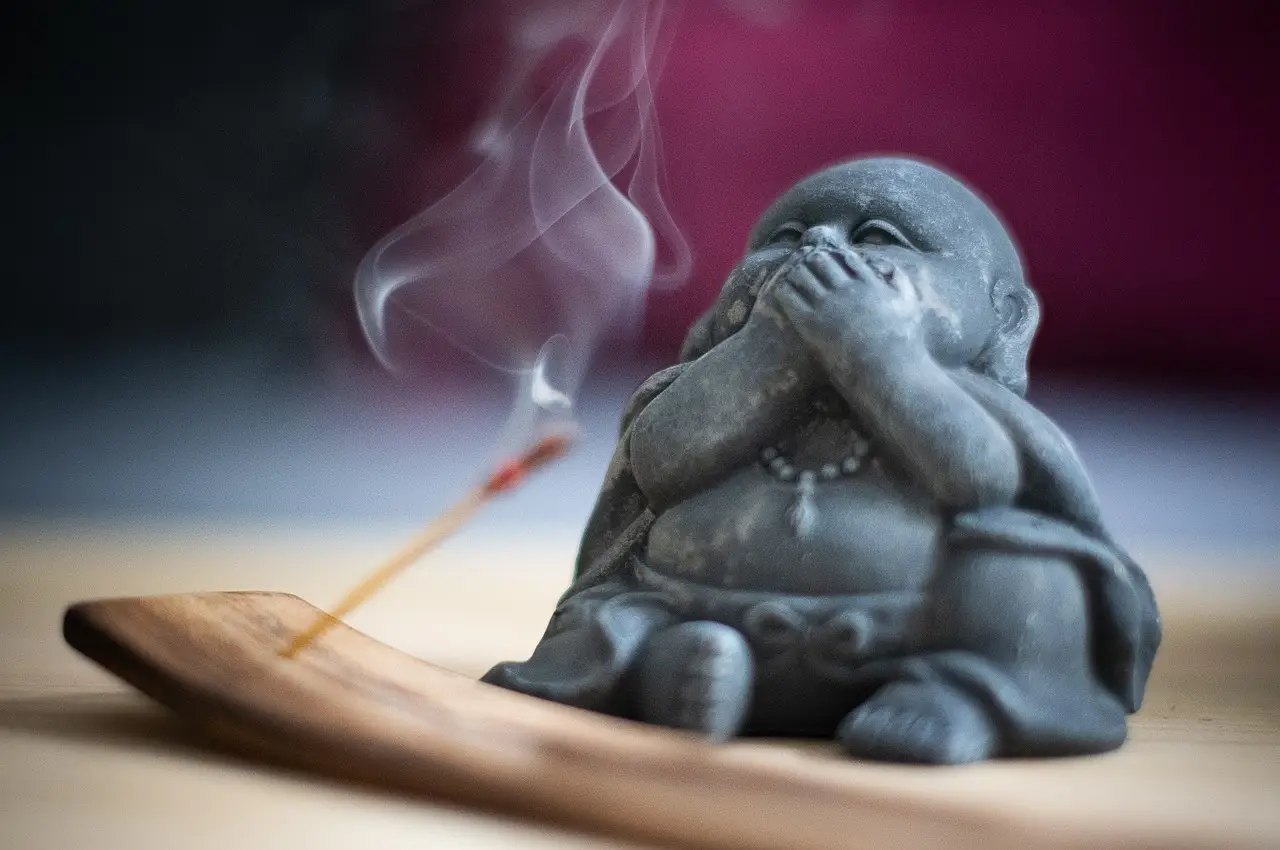Imagine waking up to the sounds of birds singing, the wind gently rustling the leaves, and the soft hum of nature around you. No distractions, no noise from the outside world—just pure, undisturbed silence. This serene stillness is more than just a break from the chaos; silence in spiritual practice is a powerful tool.
Silence as a Pathway to Inner Clarity
Silence has a unique way of bringing us closer to our true selves. In the stillness, when all the noise and distractions of daily life fade away, what remains is the essence of who we are. Many spiritual traditions emphasize the importance of silence, not as an absence of sound, but as a space where we can connect with our inner being.
When we engage in silence, we open ourselves up to a deeper understanding of our thoughts and emotions. The constant chatter in our minds often drowns out our inner voice, making it difficult to discern our true feelings and desires. By practicing silence, we create a mental environment where clarity can emerge, allowing us to see things as they truly are, rather than through the distorted lens of external influences.
The Role of Silence in Meditation
Meditation is a cornerstone of many spiritual practices, and silence plays a crucial role in its effectiveness. When we meditate, we often seek to quiet the mind, to move beyond the endless stream of thoughts that occupy our consciousness. Silence is not just the absence of external noise, but also the quieting of the internal dialogue that often dominates our mental space.
In the silence of meditation, we can experience a profound sense of peace and stillness. This inner quiet allows us to connect with a deeper level of consciousness, where the true nature of our being resides. It’s in this space that we can experience spiritual insights and a sense of oneness with the universe.
A friend of mine, who struggled with anxiety for years, found solace in meditation. At first, the silence was intimidating, as it brought her face-to-face with the very thoughts she tried to avoid. But over time, she learned to embrace the silence, using it as a tool to calm her mind and center herself. Now, she describes her daily meditation practice as the anchor that keeps her grounded amidst life’s challenges.
Silence as a Tool for Self-Reflection
In our busy lives, finding time for self-reflection can be challenging. We’re constantly bombarded with information, opinions, and noise that can cloud our judgment and decision-making. Silence offers a respite from this onslaught, providing us with the space to turn inward and reflect on our thoughts, actions, and experiences.
Self-reflection is essential for spiritual growth. It allows us to evaluate our lives, recognize patterns, and make conscious choices that align with our spiritual goals. In silence, we can ask ourselves important questions: Am I living in alignment with my values? What is my purpose? How can I grow and evolve spiritually?
One of the most profound experiences of self-reflection I’ve witnessed was during a silent retreat I attended a few years ago. For seven days, participants were encouraged to refrain from speaking, reading, or engaging in any form of communication. The silence was initially uncomfortable, but as the days passed, I noticed a shift in myself and others. Without the usual distractions, we were forced to confront our inner thoughts and emotions. By the end of the retreat, many of us had gained deep insights into our lives, leading to personal transformations.
The Healing Power of Silence in Spiritual Practice
Silence in spiritual practice is not just a tool for growth; it also has the power to heal. In the stillness, we can release the tension and stress that accumulate in our bodies and minds. Many people find that spending time in silence, whether through meditation, prayer, or simply being in nature, can have a profoundly calming effect.
Research has shown that silence can reduce stress and anxiety, lower blood pressure, and promote overall well-being. When we allow ourselves to be silent, we give our nervous system a chance to reset, leading to improved mental and physical health.
A close relative of mine who struggled with chronic stress found relief through daily walks in nature. She would leave her phone behind and immerse herself in the natural silence of the woods. These moments of solitude allowed her to disconnect from the pressures of daily life and reconnect with herself. Over time, she noticed a significant reduction in her stress levels and an overall improvement in her mood and well-being.
Silence in Daily Life: Practical Tips
Incorporating silence into our daily lives doesn’t require drastic changes. Small, intentional practices can make a significant difference in our spiritual journey. Here are a few ways to embrace silence in your routine:
Morning Quiet Time: Start your day with a few minutes of silence. Whether it’s through meditation, deep breathing, or simply sitting quietly with your thoughts, this practice can set a peaceful tone for the rest of your day.
Mindful Listening: When engaging in conversation, practice mindful listening. Focus fully on the other person without the urge to respond immediately. This creates a space of silence that allows for deeper connection and understanding.
Silent Breaks: Throughout your day, take short breaks to disconnect from the noise around you. Step outside, close your eyes, and tune into the silence within. These moments of stillness can help you recharge and refocus.
Nature Retreats: Spend time in nature, away from the hustle and bustle of everyday life. Whether it’s a weekend camping trip or a day hike, immersing yourself in the natural silence of the outdoors can be incredibly rejuvenating.
End the Day with Silence: Before going to bed, take a few moments to sit in silence. Reflect on your day, express gratitude, and allow yourself to unwind. This practice can promote better sleep and a sense of inner peace.
Embracing Silence for Spiritual Growth
Silence is a powerful yet often overlooked aspect of spiritual practice. By embracing silence in spiritual practice, we can create a space where our inner wisdom can emerge, guiding us on our spiritual journey. Whether through meditation, self-reflection, or simply spending time in nature, silence offers us the opportunity to connect with our true selves and experience a deeper sense of peace and clarity.
As you explore the role of silence in spiritual practice, remember that it’s not about achieving a perfect state of stillness, but about creating a space where you can listen to the whispers of your soul. The more you practice, the more you’ll discover the profound impact that silence can have on your spiritual growth.
What role does silence play in spiritual practice? Have you experienced any profound insights or healing through silence? Share your thoughts and experiences in the comments below—I’d love to hear your perspective.





